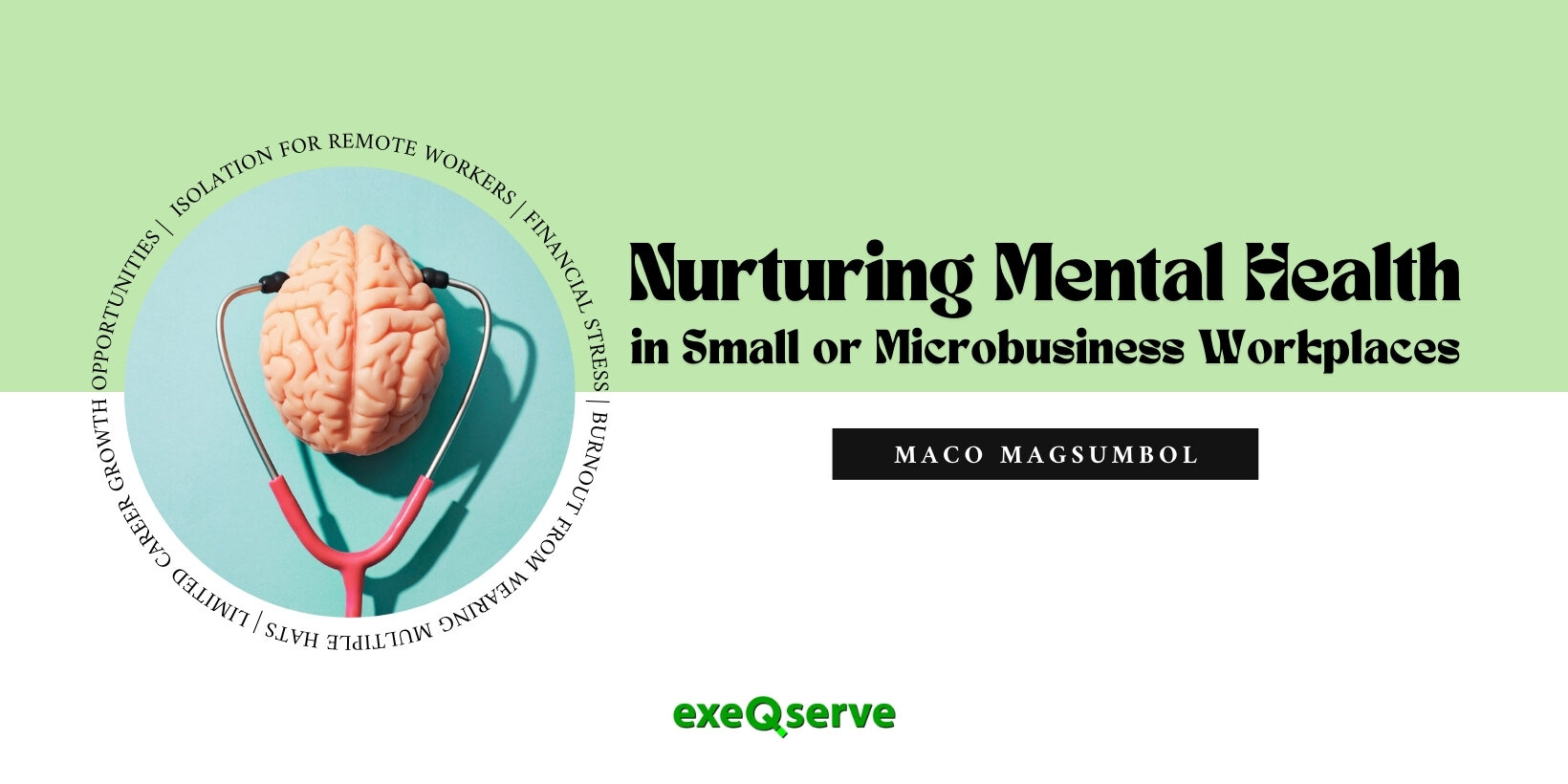In microbusinesses, where teams are often tight-knit and resources may be limited, prioritizing mental health is both a challenge and an opportunity. This article explores how microbusiness owners and their small teams can foster a mentally healthy work environment, benefiting both individuals and the business.
The Unique Mental Health Landscape in Microbusinesses
Microbusinesses, typically defined as having fewer than 10 employees, face distinct mental health challenges:
- Increased pressure on individuals due to wearing multiple hats
- Blurred lines between work and personal life
- Limited resources for formal mental health programs
- Close interpersonal relationships that can be both supportive and stressful
However, these characteristics also offer unique opportunities for creating a supportive mental health environment.
Key Strategies for Promoting Mental Health in Microbusinesses
- Open Communication in Close-Knit Teams:
- Foster an environment where team members feel comfortable discussing mental health concerns.
- Regular check-ins can be more informal and frequent in small teams.
- Flexible Work Arrangements:
- Leverage the agility of a small business to offer flexible hours or remote work options.
- Be open to adjusting roles or responsibilities when needed to support mental well-being.
- Lead by Example:
- As a microbusiness owner or leader, model healthy work habits and self-care.
- Openly discuss your own mental health challenges and coping strategies.
- Maximize Limited Resources:
- Research and share free or low-cost mental health resources with your team.
- Consider partnering with local mental health professionals for occasional workshops or consultations.
- Create a Supportive Culture:
- In a small team, every interaction matters. Encourage a culture of empathy and support.
- Celebrate small wins and personal milestones to boost morale.
- Manage Workload Collaboratively:
- With limited staff, discussing and fairly distributing workloads openly is crucial.
- Encourage team members to speak up when feeling overwhelmed.
- Promote Work-Life Balance:
- Respect personal time and avoid after-hours communication unless necessary.
- Encourage taking breaks and using vacation time, even if it means temporarily covering for each other.
Addressing Common Microbusiness Mental Health Challenges
- Isolation for Remote Workers:
- Schedule regular video check-ins and virtual social events.
- Encourage local coworking spaces or occasional in-person meetups if possible.
- Financial Stress:
- Be transparent about the business’s financial health to reduce uncertainty.
- Offer financial wellness resources or workshops.
- Burnout from Wearing Multiple Hats:
- Regularly reassess and redistribute responsibilities.
- Invest in training to help team members manage diverse tasks more efficiently.
- Limited Career Growth Opportunities:
- Focus on skill development and learning opportunities.
- Discuss individual career goals and how they align with the business’s growth.
In a microbusiness, the mental health of each team member significantly impacts the entire operation. By prioritizing mental wellbeing, microbusiness owners can create a resilient, engaged, and productive team. Remember, fostering mental health doesn’t require large budgets or formal programs – it’s about creating a supportive environment where everyone feels valued and understood.
By leveraging the close relationships and flexibility inherent in microbusinesses, owners and team members can work together to build a mentally healthy workplace that not only supports individual wellbeing but also drives the success and sustainability of the business.
About the Author
Maco Magsumbol is ExeQserve’s HR and Admin Associate, known for her fun-loving energy and dedication to fostering a positive work environment. Passionate about employee engagement and mental well-being, Maco ensures that every team member feels supported and connected. With her strong sense of empathy and commitment to building a healthy workplace culture, she actively implements initiatives that promote mental health and collaboration. Maco is always ready with a smile and is deeply invested in the personal and professional growth of her colleagues.











